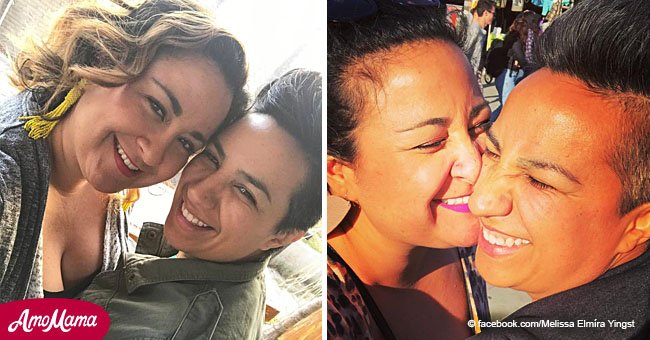
Hearing impaired couple 'stunned' as airport agent refuses to communicate with them in writing
The video on which a hearing impaired couple denounce a Delta Airlines’ agent at the Detroit Metropolitan Wayne Country airport of refusing them their right to communicate through writing went viral on Facebook.
On January 27, Melissa Elmira Yingst and Socorro Garcia were supposed to take a Delta Airlines flight from Detroit to Los Angeles, but an unfortunate incident with a gate agent forced them to postpone their plan.
After their failed attempt to board their flight due to what they consider an act of discrimination on the agent’s part, both women shared a video on Yingst’s Facebook account telling their story to the world, and the clip soon went viral.
THE INCIDENT
Recorded from a hotel room not far from the airport, the video shows Yingst and Garcia recalling their experience, and the post ended up been shared more than 3.000 times.
The couple used sign language and a written transcription to spread the word about the difficult situation they had to face.
“The ‘infamous’ Deaf airport discrimination experience happened to us tonight with Delta Air Lines, Delta airlines at DTW. No one in our community is immune to this kind of oppression,” they captioned the video.
Yingst started by citing the many times she heard stories of discrimination, disrespect, and refusal to cooperate affecting “Deaf, DeafBlind, and DeafDisabled people” and confessed that she failed to believe them.
But when the turn came for them to experience hostility because of a communication barrier, they understood that they had to let others know about it.
According to Yingst and Garcia, the trouble started when Yingst they were offered to be seated together even when their tickets indicated for them to seat apart.
When they approached the gate agent to request their seats using a mobile phone to communicate via writing, the woman allegedly kept talking back to them, which made it impossible for the couple to get what was been said to them.
Yingst tried to insist on the subject, wondering why they had been offered something they weren’t going to get, but all the response she had from the gate agent was to write down in a piece of paper that it was impossible for them to seat together since the flight was full.
“I wanted to continue to communicate and decided to try and write on that same paper but instead of giving us the paper we asked for, she crumbled it in front of us and threw it in the trash,” Garcia said.
With that rude gesture, the agent considered the conversation to be over, but from that moment on, as Yingst and Garcia put it, it stopped being about seats, but about their right to communication access.
Expecting to report the employee to the airline management, Yingst and Garcia learned that her name was Felicia by taking a look at her badge after the woman refused to tell it to them.
That is when Garcia started to tried to pick the crumbled piece of paper from the trash to demand Felicia to communicate with them through writing once again, with the agent keeping on pushing her away.
Soon after this, the police became involved, and they took sides with the agent, who claimed to have been assaulted by Garcia. As a result, the couple was booked to another flight and left the airport.
Yingst added that the police also gave them little opportunity to understand what has been saying about the case since they didn’t try to communicate with them with other than their voice.
Delta tried to make it all about the seats, telling NBC that the problem was that they had bought tickets of different prices, and while the agent tried to seat them together, she never guaranteed them it was going to be possible.
“This really isn't about us not being able to sit together but how they handled communication and refused to provide us access to the needs we asked for.”
-Melissa Yingst, Facebook, January 27, 2019.
It is hard to believe that there are still so many attitudinal barriers that people or different conditions have to face when they try to move around like any regular citizen.
ATTITUDINAL BARRIERS
Attitudinal barriers are “behaviors, perceptions, and assumptions that discriminate against persons with disabilities. These barriers often emerge from a lack of understanding, which can lead people to ignore, to judge, or have misconceptions about a person with a disability.”
This kind of barrier was the one a blind woman named Shelley Adams met when she was trying to get home after flying into Halifax, Canada, when she was refused taxi service because of her guide dog.
“I have just as many rights as anyone else and there is a Blind Person’s Rights Act and my dog is allowed anywhere that I am allowed,” Adams, who is aware of her legal rights, said about it.
A BUS DRIVER TEACHES A LESSON
While there is still much work to do on the general population’s awareness about how to make the world accessible to all, fortunately, there are people committed to educating others on how to do their part in making a place for all kinds of people.
French physically disabled man Francois Le Berre has a Paris bus driver to thank for the gesture he had when none of the passengers on his bus moved to make space for Le Berre to ride along on his wheelchair.
As Le Berre shared on Facebook, when the bus driver saw this, he was so upset that he asked everyone to get off the bus and then invited Le Berre and his companion to board.
